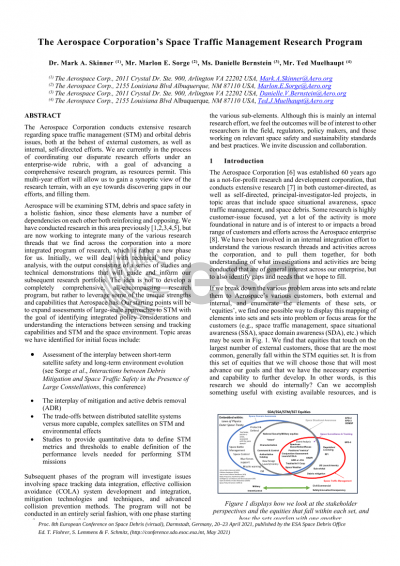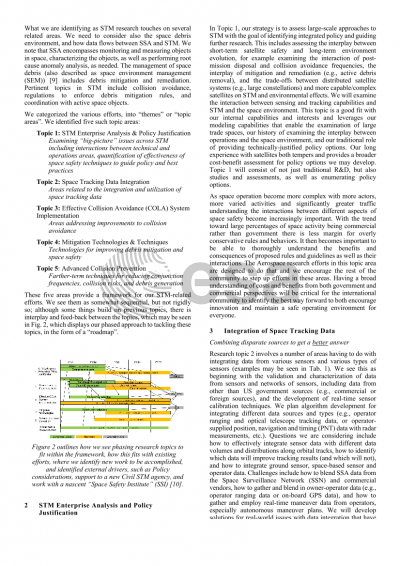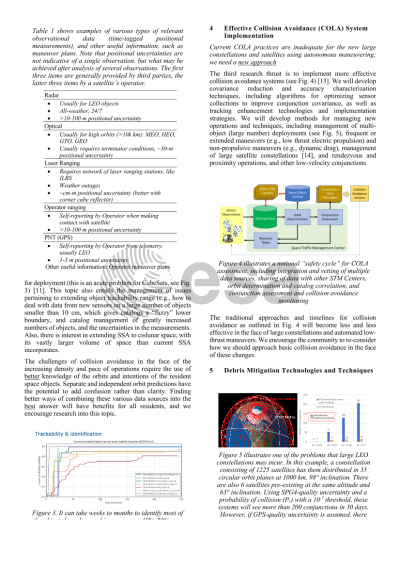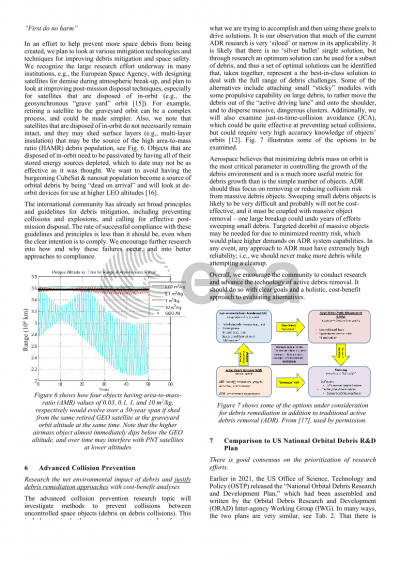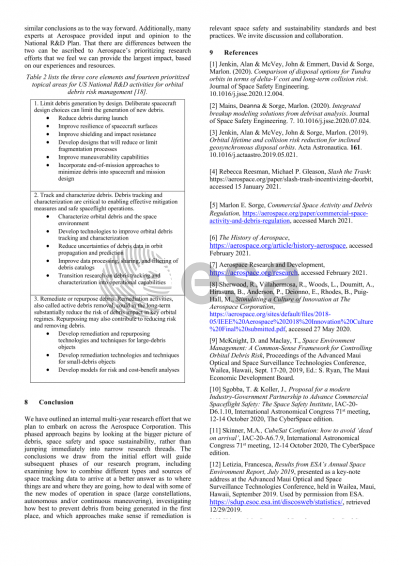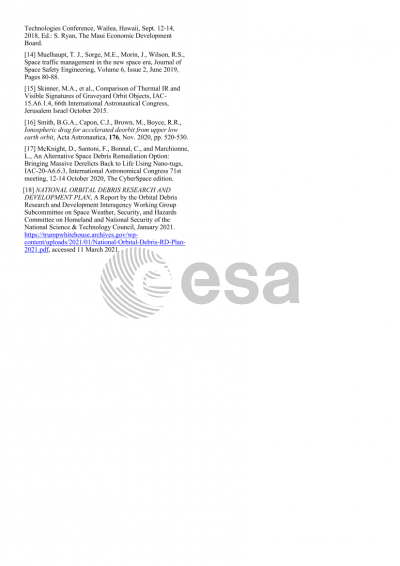Document details
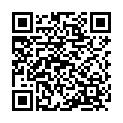
Abstract
The Aerospace Corporation conducts extensive research regarding space traffic management (STM) and orbital debris issues, both at the behest of external customers, as well as internal, self-directed efforts. We are currently in the process of coordinating our disparate research efforts under an enterprise-wide rubric, with a goal of advancing a comprehensive research programme. This multi-year effort will allow us to gain a synoptic view of the research terrain, with an eye towards discovering gaps in our efforts, and filling them.
Our initial plan for the first phase, that will be reported on here, will deal with technical and policy analysis, with the output consisting of a series of studies and technical demonstrations that will guide and inform our subsequent research portfolio. The idea is not to develop a completely comprehensive, all-encompassing research programme, but rather to leverage some of the unique strengths and capabilities that Aerospace has. Our starting points will be to assess large-scale approaches to STM with the goal of identifying integrated policy considerations and understanding the interactions between sensing and tracking capabilities and STM and the space environment. Topic areas we have identified for initial focus include:
• Assessment of the interplay between short-term satellite safety and long-term environment evolution
• The interplay of mitigation and active debris removal (ADR)
• The trade-offs between distributed satellite systems versus more capable, complex satellites on STM and environmental effects
• Studies to provide quantitative data to define STM metrics and thresholds to enable definition of the performance levels needed for performing STM missions
Subsequent phases of the programme will investigate issues involving space tracking data integration, effective collision avoidance (COLA) system development and integration, mitigation technologies and techniques, and advanced collision prevention methods. The programme will not be conducted in an entirely serial fashion, with one phase starting at the completion of the previous one, but rather in a phased approach, with sub-elements from a particular phase being initiated as we understand the logic and inter-connectedness of the various sub-elements. In this paper we will concentrate on explaining our thinking regarding, chiefly, the initial phase.
Preview
